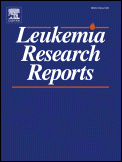
Leukemia Research Reports
Scope & Guideline
Fostering collaboration for a leukemia-free future.
Introduction
Aims and Scopes
- Clinical case studies and reports:
The journal frequently publishes detailed case reports that highlight unique presentations and treatment responses in patients with leukemia and related disorders, providing insights into clinical practice. - Innovative treatment modalities:
A significant focus is placed on the exploration of new therapeutic strategies, including novel chemotherapy regimens, targeted therapies, and immunotherapy, reflecting the evolving landscape of leukemia treatment. - Genetic and molecular insights:
Research on genetic mutations, chromosomal abnormalities, and their implications for disease prognosis and treatment is a core area, enhancing the understanding of leukemia pathophysiology. - Real-world evidence and outcomes:
The journal emphasizes real-world studies that analyze treatment outcomes, efficacy, and safety, particularly in diverse patient populations, thereby addressing practical issues in clinical oncology. - Interdisciplinary approaches:
The journal encourages interdisciplinary research that bridges clinical and laboratory studies, fostering collaboration between hematologists, oncologists, and researchers.
Trending and Emerging
- Targeted therapies and precision medicine:
There is an increasing number of publications focusing on targeted therapies, including the use of tyrosine kinase inhibitors and monoclonal antibodies, reflecting a shift towards personalized treatment approaches. - Immunotherapy advancements:
Emerging research on immunotherapeutic strategies, including CAR T-cell therapy and checkpoint inhibitors, is gaining traction, highlighting their potential in treating resistant and relapsed leukemias. - Genomic profiling and its implications:
The trend towards genomic profiling in leukemias is on the rise, with studies exploring the impact of genetic mutations on treatment responses and disease prognosis, underscoring the importance of personalized medicine. - Management of complex cases:
An increasing focus on complex cases involving multiple comorbidities or rare presentations indicates a trend towards addressing the challenges faced by clinicians in managing high-risk patients. - Real-world treatment outcomes:
Research emphasizing real-world treatment outcomes and efficacy in diverse populations has become more prominent, reflecting a desire for data that informs clinical practice beyond clinical trials.
Declining or Waning
- Traditional chemotherapy protocols:
There is a noticeable decrease in studies focusing on conventional chemotherapy regimens as the primary treatment modality, as newer, targeted therapies gain attention and clinical application. - Less emphasis on older diagnostic methods:
The journal has seen fewer publications on traditional diagnostic techniques, such as basic cytogenetic analyses, as newer molecular techniques and advanced technologies take precedence. - Reduced focus on common hematological disorders:
Research on more common hematological conditions has waned, with a shift towards rarer malignancies and complex cases, reflecting a growing interest in unique clinical presentations. - Diminished reporting on long-term follow-up studies:
There appears to be a decline in the number of studies focusing on long-term follow-up of patients, which may suggest a growing focus on immediate treatment outcomes rather than extended survivorship.
Similar Journals
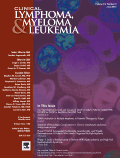
Clinical Lymphoma Myeloma & Leukemia
Connecting Researchers for a Cure in HematologyClinical Lymphoma Myeloma & Leukemia is a prestigious journal dedicated to the study and treatment of hematologic malignancies, offering a vital platform for researchers and healthcare professionals in the fields of oncology, hematology, and cancer research. Published by CIG MEDIA GROUP, LP, this journal has established itself as a crucial resource since its inception in 2010, with a continuous commitment to disseminating knowledge until at least 2024. With an impact factor that objectively reflects its influence, it is rated in Q3 quartiles in both Cancer Research and Hematology as well as in Oncology as of 2023. Researchers can access a wealth of articles and studies that explore various dimensions of lymphoma, myeloma, and leukemia, thus fostering an environment of collaboration and innovation. Although it currently does not offer full open access, its extensive archive and rigorous peer-review process ensure the publication of high-quality research, making it an essential resource for anyone dedicated to advancing the science and practice of treating blood cancers.
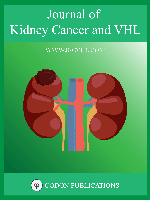
Journal of Kidney Cancer and VHL
Catalyzing progress in VHL research and treatment.The Journal of Kidney Cancer and VHL stands as a leading platform for disseminating cutting-edge research in the field of renal oncology, particularly focused on kidney cancer and Von Hippel-Lindau (VHL) disease. Published by CODON PUBLICATIONS since its inception, this Open Access journal, with ready accessibility since 2014, aims to foster knowledge exchange and collaboration among researchers, clinicians, and healthcare professionals dedicated to improving outcomes for patients with kidney cancer. With an ISSN of 2203-5826, this journal serves as a vital resource in the academic community, encouraging submissions that span various topics, including epidemiology, treatment modalities, and innovative therapeutic strategies. By providing unrestricted access to its content, the Journal of Kidney Cancer and VHL promotes inclusive participation in the global dialogue surrounding these critical health challenges, ensuring that the latest findings reach all corners of the scientific community.
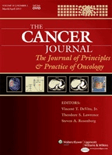
CANCER JOURNAL
Pioneering Insights for Tomorrow's Cancer Therapies.CANCER JOURNAL is a leading peer-reviewed publication dedicated to the dissemination of innovative research in the fields of cancer research and oncology. Published by Lippincott Williams & Wilkins, this journal serves as an essential resource for researchers, clinicians, and students seeking to advance their understanding of cancer mechanisms, treatment strategies, and patient care. With an ISSN of 1528-9117 and an E-ISSN of 1540-336X, it boasts a respectable 2023 Q2 category ranking in both Cancer Research and Oncology, reflecting its impactful contributions to the scientific community. Although it currently does not offer open access, the journal's rigorous peer-review process ensures the publication of high-quality, relevant studies that stimulate further investigation and collaboration among professionals. Since its inception, the journal has evolved through several converged years, maintaining a steadfast commitment to addressing the complexities of cancer biology and treatment. At its core, CANCER JOURNAL aims to foster advancements in oncology, making it a vital platform for sharing pivotal findings that could transform cancer research and therapeutic practices.
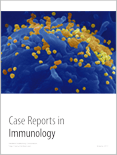
Case Reports in Immunology
Pioneering Discoveries in Immunology Through Case DocumentationCase Reports in Immunology, published by HINDAWI LTD, is an esteemed open-access journal that has been contributing to the field of immunology since its launch in 2011. With both ISSN 2090-6609 and E-ISSN 2090-6617, the journal provides a platform for researchers to publish detailed case reports that explore diverse immunological conditions and novel treatment approaches. This journal is crucial for clinicians, researchers, and students alike, seeking to broaden their understanding of immunology's practical applications and advances. As of 2023, it holds a Q3 ranking in Immunology and Q2 in Immunology and Allergy, reflecting its growing relevance and contribution to the field. Additionally, it is indexed in Scopus, where it ranks #178 in Immunology and Allergy and #192 in Immunology and Microbiology, enhancing its visibility and impact. With a comprehensive accessibility model, the journal is dedicated to disseminating knowledge widely and enriching discussions in immunological research.
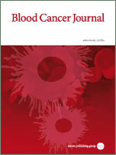
Blood Cancer Journal
Leading the charge in hematology and oncology.Blood Cancer Journal, published by SPRINGERNATURE, is a leading open-access journal that has been at the forefront of hematology and oncology research since its inception in 2011. With an impressive impact factor and a commitment to disseminating high-quality research, it holds a prestigious Q1 ranking in both hematology and oncology categories as of 2023. The journal is dedicated to publishing innovative studies, comprehensive reviews, and insightful commentaries that advance our understanding of blood cancers, making it an essential resource for researchers, healthcare professionals, and students in the field. Its open-access model ensures that groundbreaking research is accessible to a global audience, promoting collaborative efforts to enhance treatment methodologies and patient outcomes. With a strong reputation illustrated by its Scopus rankings—8th in hematology and 30th in oncology—Blood Cancer Journal exemplifies excellence and leadership in the ever-evolving landscape of cancer research.
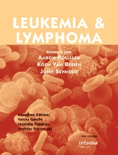
LEUKEMIA & LYMPHOMA
Elevating the standards of hematological research.LEUKEMIA & LYMPHOMA is a prestigious peer-reviewed journal published by Taylor & Francis Ltd, focusing on vital research in the fields of hematology, oncology, and cancer research. With an ISSN of 1042-8194 and an E-ISSN of 1029-2403, this journal is recognized for its high-quality and impactful contributions to understanding blood cancers, with a notable impact factor reflective of its influence. Since its inception in 1989, LEUKEMIA & LYMPHOMA has continuously provided a platform for researchers and professionals to disseminate their findings, fostering advancements in diagnostic, therapeutic, and clinical strategies related to leukemias and lymphomas. The journal ranks in the Q2 category for both Hematology and Oncology research categories as of 2023, underscoring its commitment to excellence. The journal is based in the United Kingdom and serves a global audience, making it an essential resource for those dedicated to improving outcomes for patients with hematological malignancies.
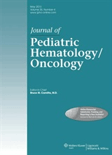
JOURNAL OF PEDIATRIC HEMATOLOGY ONCOLOGY
Bridging research and practice in pediatric hematology and oncology.JOURNAL OF PEDIATRIC HEMATOLOGY ONCOLOGY, published by Lippincott Williams & Wilkins, serves as a vital platform for the dissemination of cutting-edge research and insights in the fields of pediatric hematology and oncology. Since its inception in 1979, the journal has maintained a commitment to advancing knowledge through peer-reviewed articles that contribute to the understanding and treatment of blood disorders and cancers in children. With an impact factor reflective of its academic contributions, the journal is positioned in the Q3 quartile across key medical categories — Hematology, Oncology, and Pediatrics, Perinatology and Child Health — indicating its relevance and influence in the field. While it does not currently offer open access options, the journal remains a crucial resource for researchers, clinicians, and students dedicated to improving pediatric care and outcomes. Researchers are encouraged to contribute to this esteemed journal as it seeks to bridge the gap between clinical practice and research, fostering innovation and improved quality of life for young patients affected by hematologic and oncologic conditions.

Blood and Lymphatic Cancer-Targets and Therapy
Fostering Collaboration for Breakthrough Cancer SolutionsBlood and Lymphatic Cancer-Targets and Therapy, published by DOVE MEDICAL PRESS LTD, is a vital open-access journal that has been disseminating crucial research and findings in the field of hematology and oncology since 2011. With its ISSN 1179-9889, this journal focuses on the latest therapeutic targets and innovative treatment strategies for blood and lymphatic cancers, contributing significantly to the advancement of knowledge and practice in this specialized area. Designed for researchers, healthcare professionals, and students alike, Blood and Lymphatic Cancer-Targets and Therapy aims to foster a deeper understanding of cancer biology and promote collaborative efforts leading to novel therapeutic interventions. The open-access model ensures that research findings are readily accessible to a global audience, underscoring the journal's commitment to enhancing patient care and fostering educational growth in the cancer domain.
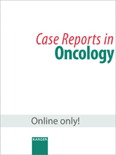
Case Reports in Oncology
Connecting the Global Oncology CommunityCase Reports in Oncology is a peer-reviewed journal published by KARGER, dedicated to the dissemination of high-quality case studies and clinical reports in the field of oncology. Since its transition to Open Access in 2008, this Swiss-based journal has aimed to broaden the accessibility of key findings to a global audience of researchers, healthcare professionals, and students. The journal is positioned in the Q3 quartile for oncology, indicating its valuable contribution to the field, while also holding a Scopus rank of 294 out of 404 in Medicine, with a percentile of 27%. However, its open access model ensures that even those outside of traditional academic institutions can engage with critical advancements and novel insights from the oncology community. With a publication span extending from 2010 to 2024, Case Reports in Oncology serves as a crucial platform for sharing unique clinical experiences and innovative treatment strategies, ultimately enriching the practice and study of oncology.

Case Reports in Oncological Medicine
Elevating patient care with detailed case studies.Case Reports in Oncological Medicine is a distinguished open-access journal published by HINDAWI LTD, dedicated to disseminating valuable insights and findings in the field of oncology. Since its inception in 2011, this journal has aimed to provide a unique platform for the publication of detailed case reports that contribute to our understanding of cancer diagnosis, treatment, and management. With a specific focus on sharing clinical experiences and outcomes, it seeks to engage researchers, healthcare professionals, and students who are committed to advancing oncological knowledge and improving patient care. Although coverage in Scopus was discontinued from 2014 to 2017, the journal currently holds a rank of #232/323 in Medicine - Oncology, placing it within the 28th percentile. Researchers interested in making their work accessible can benefit from the journal's open-access model, allowing greater visibility and citation potential within the scientific community. The journal is positioned as an important resource for those looking to stay updated on the latest case studies and innovations in oncological medicine.